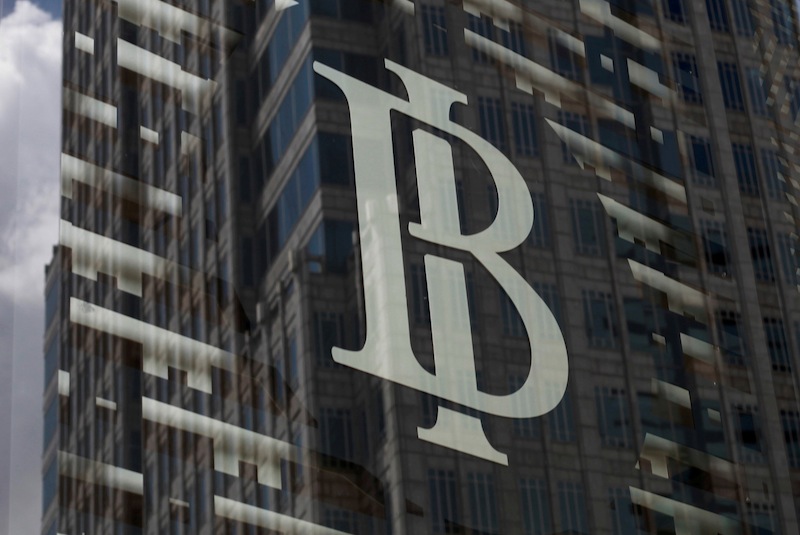JAKARTA, April 26 — Indonesia’s central bank governor said today he would be prepared to adjust the benchmark interest rate if weakness in the rupiah currency threatened its inflation target or the stability of the financial system.
The rupiah has lost nearly 5 per cent of its value against the US dollar since late January and traded close to its weakest in more than two years today.
The dollar has climbed to multi-month highs against a basket of currencies, supported by the rise in US long-term debt yields to a four-year peak.
“If pressure continues and has the potential to hamper the inflation target and disturb the stability of the financial system, BI will not rule out adjusting the benchmark rate,” Governor Agus Martowardojo told a news conference, adding that any change in the rate would depend on economic data.
Foreigners hold about 40 per cent of the government bond market. Higher rates would stabilise the rupiah by widening rate differentials with the United States and also increase the carry or yield in the high-yielding bond market.
The governor’s comments came a week after Bank Indonesia (BI) held its key interest rate steady at 4.25 per cent, saying a hike would be overkill or counterproductive to growth momentum.
The central bank, however, is facing growing calls to raise rates to lessen the risk of outflows from the country’s stocks and bonds.
“Higher rates will at least tame the rupiah from weakening sharply,” said Taye Shim, head of research at Mirae Asset Sekuritas in Jakarta.
Kartika Wirjoatmodjo, chief executive of Indonesia’s second-biggest bank by assets Bank Mandiri, said this week that BI should raise interest rates in step with the US Federal Reserve in the next one to three months.
Martowardojo said today the current depreciation “does not endanger” financial system stability, but he repeated that BI would continue intervening to defend the rupiah.
Most Indonesian companies had hedged their debt in foreign currencies, in line with BI regulations, he said.
Earlier this week, the governor said BI had spent “quite a sizeable amount” in the foreign exchange and sovereign bond markets to keep the rupiah from falling further.
Traders said the central bank had intervened again today and the currency closed at 13,885 per dollar after hitting its lowest in more than two years.
Martowardojo said the rupiah’s level was undervalued.
Meanwhile, the yield curve of Indonesian government bonds rose and the main stock index ended 2.8 per cent lower today.
The central bank’s foreign exchange reserves fell US$6 billion (RM23.5 billion) in February-March, partly due to intervention.
Martowardojo said the level of March reserves at US$126 billion was adequate and that Southeast Asia’s largest economy still had a second line of defence including bilateral swap deals with other central banks.
The governor said that Indonesia’s economic fundamentals were strong, citing low inflation, a current account deficit within BI’s healthy threshold and good economic growth.
Annual inflation in March was 3.40 per cent, inside BI’s 3-5 per cent target range. The central bank expects a current account deficit of below 3 per cent of gross domestic product this year, while economic growth is forecast at 5.1–5.5 per cent.
Martowardojo said the rupiah was doing better than some other Asian currencies in terms of per centage decline, urging people not to be fixated on a certain “psychological level”.
The last time BI increased its key interest rate was in November 2014. — Reuters






















